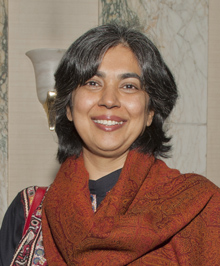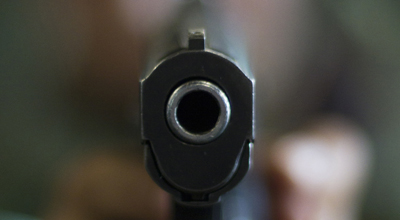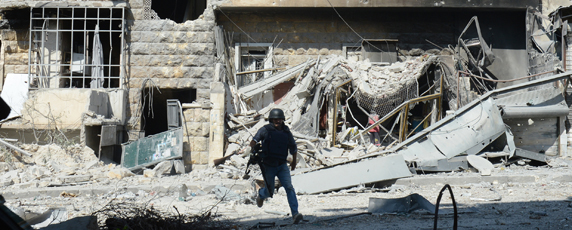
Remembering Ayesha Haroon, editor who embraced facts
The highly respected Pakistani editor Ayesha Haroon first came to CPJ’s New York office in July 2011, along with her husband, Faisal Bari, and Absar Alam, both of whom work for the Open Society Foundations. We talked about ways to confront the dangerous conditions facing Pakistani journalists. It was a bad year: Seven journalists would…
Third journalist reported killed in twin blasts in Quetta
Police, emergency workers, and at least three journalists were killed in a bomb blast on January 10, 2012, that occurred 10 minutes after an initial explosion near a billiards hall in Quetta, capital of Pakistan’s restive Baluchistan province, according to news reports and CPJ sources.

At least two journalists killed in Quetta blasts
New York, January 10, 2013–At least two journalists were killed and two others seriously injured when a bomb went off near a billiards hall in Quetta, capital of Pakistan’s restive Baluchistan province, as the journalists were reporting on an explosion that was set off there just minutes earlier, according to local journalists and news reports.…
Pakistan’s problematic record on Internet restrictions
The fleeting nature of YouTube’s availability in Pakistan this weekend–the site, which has been banned in the country since September, was unblocked for a whole three minutes–is only the latest emblem of Islamabad’s erratic and confounding approach to Internet censorship. Those who have been hoping for less opaque tactics apparently are in for disappointment.

Journalists still murdered where impunity reigns
Almost half of the 67 journalists killed worldwide in 2012 were targeted and murdered for their work, research by the Committee to Protect Journalists shows. The vast majority covered politics. Many also reported on war, human rights, and crime. In almost half of these cases, political groups are the suspected source of fire. There has…
Pakistanis address violence on Pakistani journalists
There is an absolutely terrific seven-part special report by The News on Sunday on Pakistan’s problem with the killing of journalists and the impunity surrounding their deaths. It’s written by and for Pakistanis, with compelling direction from Adnan Rehmat of Intermedia Pakistan–and not only describes and analyzes the problem, but offers approaches to potential solutions.

Speak Justice campaign fights impunity in press murders
The tortured and decapitated body of 39-year-old María Elizabeth Macías Castro was found on a Saturday evening in September 2011. It had been dumped by the side of a road in Nuevo Laredo, a Mexican border town ravaged by the war on drugs. Macías, a freelance journalist, wrote about organized crime on social media under…

